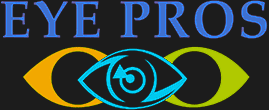When you’re not wearing your glasses or contacts, do you see blurring, shadowing, or doubling of images? If so, you may have astigmatism. Astigmatism causes blurriness, unlike other vision problems, affecting your sight regardless of how close or far away the object is. This blurriness results from the retina’s inability to focus on light rays properly.
If you have astigmatism, chances are you face challenges when finding suitable contact lenses. Those with astigmatism can’t wear traditional soft lenses but need specialized lenses like toric lenses. Toric lenses are specifically designed for patients with astigmatism, allowing for improved focus on objects. They incorporate more than one contact power in a single lens.
Soft Toric Lenses
Soft toric contact lenses are the most prescribed lenses. They are comfortable, convenient to put in your eye, and just about every contact lens manufacturer carries them.
There’s also flexibility with lens prescribing: weekly, bi-weekly, and monthly disposable lenses are available.
But there’s more to soft toric lenses than that. For correcting astigmatism, your eye doctor needs to make sure your lens is properly fitted. They do this with laser-made markings.
The lenses also have to lie perfectly on your eye to achieve good vision. If you’re having trouble adjusting your lenses, your eye doctor can help you.
But don’t be surprised if the lenses feel weird at first.
One of the reasons why soft toric lenses are noted for their comfort is because the lens conforms to your eye. It will rotate on its own to perfectly fit on your eye.
When you receive your prescription, it will take time for the lens to become adjusted to your eye.
Hard Toric Lenses
One of the issues with soft toric lenses is their lack of stability. If your astigmatism is severe, the soft lens won’t be able to keep up with the blurriness.
It may even result in blurrier vision. If soft toric lenses don’t work for you, consider switching over to hard toric lenses.
Hard lenses do just as well correcting astigmatism, but mainly for patients with severe astigmatism.
There are two main types of hard lenses:
- Rigid Gas Permeable Lenses
- Scleral Lenses
Here’s more information on both.
Rigid Gas Permeable Lenses
Rigid gas permeable lenses, commonly known as RGP or GP lenses, are less prescribed. Only about 9% of contact lens wearers use GP lenses. But, they’re growing in popularity by serving as an alternative to soft toric lenses.
RGP lenses are made of a durable plastic that transmits oxygen. Soft lenses contain water; since the RGP lenses aren’t made of water, there’s a decreased risk of eye infection.
RGP lenses are easy to clean and last longer than soft lenses.
RGP lenses are prescribed to those with severe astigmatism because they retain their shape better. This results in improved vision.
But you may think they’re uncomfortable. The term ‘hard contact lens’ sounds extremely uncomfortable. A complaint from older hard lens models was actually their discomfort.
But RGP lenses are different. RGP lenses are made for each individual. Your eye doctor will prescribe a lens that matches your cornea shape and the shape of your eye including the curvature, size, and corrective power.
RGP lenses are also thinner and smoother than other hard lenses.
Scleral Lenses
These are specialized RGP lenses that are larger in diameter. The term ‘scleral’ means the lenses completely cover the cornea and extend to the sclera or the outer wall of the eye.
Scleral lenses are said to be more comfortable because they cover the entirety of the cornea and sclera.
Scleral lenses are also made to protect the thin layer of sclera on your eye, so they’re made delicately. Because of this, they produce less sensation.
Scleral lenses are great for astigmatism patients because they rarely dislocate.
They’re stable and stay in the center of your eye. They hold in place, allowing for clearer vision. Like normal RGP lenses, scleral lenses are perfect for those with severe astigmatism.
Scleral lenses are prescribed when other lens types haven’t worked.
Hybrid Toric Contact Lenses
These are a combination of hard and soft lenses. The center of these lenses is soft, while the outer rim is hard. Even though RGP lenses boast comfort, patients usually prefer the hybrid lenses over the RGP lenses.
But hybrid lenses are very similar to hard lenses. They both correct astigmatism in similar ways. Hybrid lenses also serve as an alternative to soft lenses.
The only issue with hybrid lenses is they take longer for your eye doctor to fit.
More Information
The Issues with Regular Lenses
Patients with astigmatism have irregular cornea shapes. This cornea disproportion can result in blurriness from the contact lenses, which is why most astigmatism patients have to be sized for lenses.
Since regular soft lenses aren’t as stable as soft, hard or hybrid toric lenses, they often move around the eye. This results in stress to the nerve and ocular muscles. They also don’t deal with refraction problems like toric lenses handle.
About Toric Lenses
Toric lenses handle refraction problems and aren’t prone to moving like regular lenses.
The reason why toric lenses don’t move is that they’re thicker than regular lenses. They are made heavier at the bottom, which is what helps correct vision.
What Happens If You Don’t Treat Astigmatism
Untreated astigmatism can result in nerve tension, headaches, fatigue, and the habit of squinting eyes.
The easiest way to treat astigmatism is prescription contact lenses. Since toric lenses are heavier at the bottom, they help correct astigmatism.
Time to Find Contact Lenses for Astigmatism
If you have astigmatism, you’re required to find specific types of contact lenses. Toric lenses give the best results since they are stable while providing comfort. There are three types of toric lenses: soft, hard, and hybrid toric lenses.
Regardless of your preference, the lens will be sized to fit your needs.
If you’re in Idaho and need to schedule an appointment with an eye doctor, contact us.






